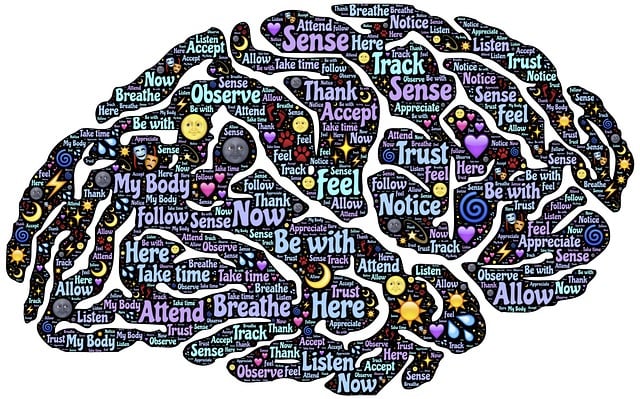In a fast-paced world, prioritizing effective stress management through self-care is vital for mental well-being. This includes regular exercise, adequate rest, mindfulness practices, and setting healthy boundaries to release endorphins, improve mood, enhance resilience, and boost overall quality of life. Establishing these habits prevents chronic stress from leading to health issues, equipping individuals to better navigate life's challenges with clarity and composure.
In today’s fast-paced world, effective stress management is paramount for maintaining optimal mental and physical well-being. This article explores powerful self-care practices designed to enhance your overall health. We delve into the significance of understanding and prioritizing self-care, highlighting its impact on mental clarity and resilience. Additionally, discover the transformative effects of physical activities in stress mitigation, mindfulness techniques for inner calm, and the cultivation of healthy habits for lasting well-being.
- Understanding the Importance of Self-Care for Mental Well-being
- Physical Activities and Their Role in Stress Management
- Mindfulness Techniques to Calm Your Mind
- Nurturing Healthy Habits for Long-term Well-being
Understanding the Importance of Self-Care for Mental Well-being

In today’s fast-paced world, where demands on our time and energy are ever-increasing, prioritizing self-care is more crucial than ever for maintaining optimal mental well-being. Effective stress management is a key component of this; chronic stress can have profound negative effects on both mental and physical health. By incorporating regular self-care practices into daily routines, individuals can cultivate resilience, enhance emotional balance, and improve overall quality of life.
Self-care isn’t a luxury—it’s an investment in ourselves. Whether it’s through engaging in activities that bring joy, setting healthy boundaries, practicing mindfulness, or ensuring adequate physical rest, these acts of self-preservation are essential for nurturing our mental fortitude. When we tend to our own needs, we become better equipped to navigate life’s challenges with clarity and composure.
Physical Activities and Their Role in Stress Management

Physical activities play a pivotal role in effective stress management. Regular exercise acts as a powerful antidote to stress by releasing endorphins, often referred to as “feel-good” hormones, which can significantly improve mood and reduce tension. Engaging in physical activity, whether it’s a brisk walk, yoga session, or intense workout, helps clear the mind and promotes a sense of calm. Moreover, exercise provides a healthy outlet for redirecting stress energy, allowing individuals to channel their feelings into productive physical movements rather than unhealthy coping mechanisms.
Incorporating regular physical activities into daily routines can be highly beneficial for long-term mental health. It aids in releasing accumulated tension, improving sleep quality, and boosting overall well-being. By prioritizing self-care through exercise, individuals can better manage stress, enhance their resilience, and cultivate a positive mindset, all of which contribute to improved mental and physical health.
Mindfulness Techniques to Calm Your Mind

In today’s fast-paced world, our minds often feel like a whirlwind of thoughts and worries. Effective stress management requires us to pause and cultivate mindfulness—a powerful tool to calm the mind and nurture well-being. Techniques such as meditation, deep breathing exercises, or simply taking a moment to observe your surroundings without judgment can help center your thoughts and reduce mental clutter. These practices encourage present-moment awareness, allowing you to detach from racing thoughts and gain clarity.
By integrating mindfulness into daily routines, individuals can enhance their ability to cope with stressors. It empowers you to recognize and accept emotions as they are, fostering a sense of inner peace. Regularly engaging in these techniques can lead to improved mental resilience, better focus, and increased overall satisfaction in life, contributing significantly to both mental and physical well-being.
Nurturing Healthy Habits for Long-term Well-being

Establishing healthy habits is key to long-term mental and physical well-being. Effective stress management is a cornerstone of this, as chronic stress can lead to serious health issues over time. Simple yet powerful practices like regular exercise, adequate sleep, and balanced nutrition form the foundation for a resilient mind and body. These habits not only reduce stress but also boost energy levels, improve mood, and enhance overall quality of life.
Incorporating mindfulness and relaxation techniques, such as meditation or deep breathing exercises, can further strengthen your coping mechanisms. By nurturing these healthy habits consistently, you’re investing in your long-term well-being, ensuring your mind and body are equipped to handle the challenges that come your way.
By incorporating self-care practices such as regular physical activity, mindfulness techniques, and healthy habits into your routine, you can significantly enhance both your mental and physical well-being. These strategies are not just beneficial for maintaining balance; they’re essential tools in achieving effective stress management. Remember, prioritizing self-care is a journey, and each step towards nurturing yourself makes a difference. Embrace these practices to unlock a happier, healthier you.
